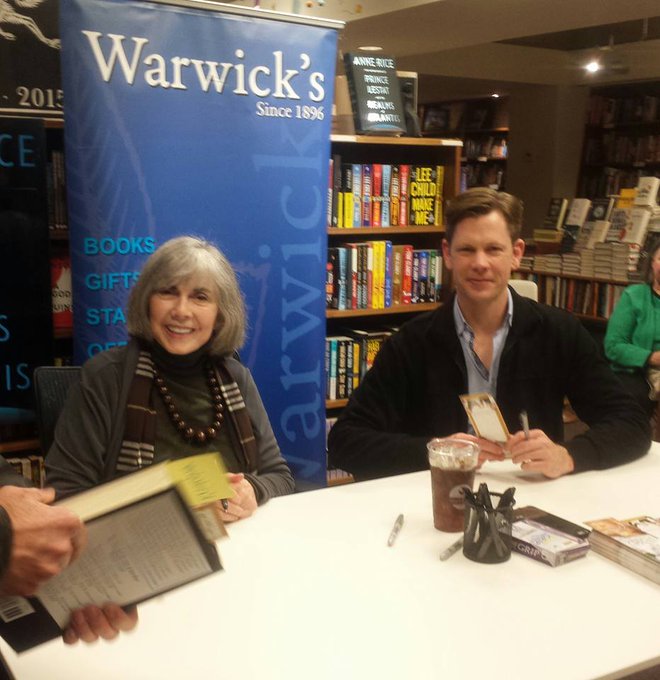 Ah, such a circus for the eye—this low-ceilinged cave—chocked-full of every imaginable kind of packageable and preserved foodstuff, toilet article, and hair accoutrement, ninety percent of which existed not at all in any form whatsoever during the century when I was born. We are talking sanitary napkins, medicinal eyedrops, plastic bobby pins, felt-tip markers, creams and ointments for all nameable part of the human body, dishwashing liquid in every color of the rainbow, and cosmetic rinses in some colors never before invented and yet undefined. Imagine Louis XVI opening a noisy crackling plastic sack of such wonders? What would he think of Styrofoam coffee cups, chocolate cookies wrapped in cellophane, or pends that never run out of ink? Well, I am still not entirely used to these items myself, though I have watched the progress of the Industrial Revolution for two centuries with my own eyes. Such drugstores can keep me enthralled for hours on end. Sometimes I become spellbound in the middle of Wal-Mart. And everybody is to everybody else a commodity, always to be treated with certain friendliness, because even if one is not of use now, one may be later. #RandolphHarris 1 of 16
Ah, such a circus for the eye—this low-ceilinged cave—chocked-full of every imaginable kind of packageable and preserved foodstuff, toilet article, and hair accoutrement, ninety percent of which existed not at all in any form whatsoever during the century when I was born. We are talking sanitary napkins, medicinal eyedrops, plastic bobby pins, felt-tip markers, creams and ointments for all nameable part of the human body, dishwashing liquid in every color of the rainbow, and cosmetic rinses in some colors never before invented and yet undefined. Imagine Louis XVI opening a noisy crackling plastic sack of such wonders? What would he think of Styrofoam coffee cups, chocolate cookies wrapped in cellophane, or pends that never run out of ink? Well, I am still not entirely used to these items myself, though I have watched the progress of the Industrial Revolution for two centuries with my own eyes. Such drugstores can keep me enthralled for hours on end. Sometimes I become spellbound in the middle of Wal-Mart. And everybody is to everybody else a commodity, always to be treated with certain friendliness, because even if one is not of use now, one may be later. #RandolphHarris 1 of 16
 There is not much love or hate to be found in human relations of our day. There is, rather, a superficial friendliness, and a more than superficial fairness, but behind that surface is distance and indifference. There is also a good deal of subtle distrust. When one being says to another, “You speak to Louis Pointe du Lac; he is all right,” it is an expression of reassurance against a general distrust. Even love and the relationships between genders has assumed this character. The great the emancipation of the pleasures of the flesh, as it occurred after the First World War, was a desperate attempt to substitute mutual pleasures of the flesh for a deeper feeling of love. When this turned out to be a disappointment the erotic polarity between the genders was reduced to a minimum and replaced by a friendly partnership, a small combine which has amalgamated its forces to hold out better in the daily batter of life, and to relieve the feeling of isolation and aloneness which everybody has. The alienation between being and being results in the loss of those general and social bonds which characterize medieval as well as most other precapitalist socities. Modern society consists of atoms (if we use the Greek equivalent of individual), little particles estranged from each other but held together by selfish interests and by the necessity to make use of each other. #RandolphHarris 2 of 16
There is not much love or hate to be found in human relations of our day. There is, rather, a superficial friendliness, and a more than superficial fairness, but behind that surface is distance and indifference. There is also a good deal of subtle distrust. When one being says to another, “You speak to Louis Pointe du Lac; he is all right,” it is an expression of reassurance against a general distrust. Even love and the relationships between genders has assumed this character. The great the emancipation of the pleasures of the flesh, as it occurred after the First World War, was a desperate attempt to substitute mutual pleasures of the flesh for a deeper feeling of love. When this turned out to be a disappointment the erotic polarity between the genders was reduced to a minimum and replaced by a friendly partnership, a small combine which has amalgamated its forces to hold out better in the daily batter of life, and to relieve the feeling of isolation and aloneness which everybody has. The alienation between being and being results in the loss of those general and social bonds which characterize medieval as well as most other precapitalist socities. Modern society consists of atoms (if we use the Greek equivalent of individual), little particles estranged from each other but held together by selfish interests and by the necessity to make use of each other. #RandolphHarris 2 of 16
 Yet beings are a social entity with a deep need to share, to help, to feel as a member of a group. What has happened to these social strivings in beings? They manifest themselves in the special sphere of the public realm, which is strictly separated from the private realm. Our private dealings with our fellow beings are governed by the principle of egotism, “each for oneself, God for us all,” in flagrant contradiction to Christian teaching. The individual is motivated by egotistical interest, and bot by solidarity with and love for one’s fellow beings. The latter feelings may assert themselves secondarily as private acts of philanthropy or kindness, but they are not part of the basic structure of our social relations. Separated from our private life as individuals is the realm of our social life as citizens. In this realm the state is the embodiment of our social existence; as citizens we are supposed to, and in fact usually do, exhibit a sense of social obligation and duty. We pay taxes, we vote, we respect the laws, and in the case of war we are willing to sacrifice our lives. What clearer example could there be of the separation between private and public existence than the fact that the same being who would not think of spending one hundred dollars to relieve the need of a stranger does not hesitate to risk one’s life to save the stranger when in war they both happen to be soldiers in uniform? The uniform is the embodiment of our social nature—civilian garb, of our egotistic nature. #RandolphHarris 3 of 16
Yet beings are a social entity with a deep need to share, to help, to feel as a member of a group. What has happened to these social strivings in beings? They manifest themselves in the special sphere of the public realm, which is strictly separated from the private realm. Our private dealings with our fellow beings are governed by the principle of egotism, “each for oneself, God for us all,” in flagrant contradiction to Christian teaching. The individual is motivated by egotistical interest, and bot by solidarity with and love for one’s fellow beings. The latter feelings may assert themselves secondarily as private acts of philanthropy or kindness, but they are not part of the basic structure of our social relations. Separated from our private life as individuals is the realm of our social life as citizens. In this realm the state is the embodiment of our social existence; as citizens we are supposed to, and in fact usually do, exhibit a sense of social obligation and duty. We pay taxes, we vote, we respect the laws, and in the case of war we are willing to sacrifice our lives. What clearer example could there be of the separation between private and public existence than the fact that the same being who would not think of spending one hundred dollars to relieve the need of a stranger does not hesitate to risk one’s life to save the stranger when in war they both happen to be soldiers in uniform? The uniform is the embodiment of our social nature—civilian garb, of our egotistic nature. #RandolphHarris 3 of 16
 The division between the community and the political state has led to the projection of all social feelings into the state, which thus becomes an idol, a power standing over and above the being. Beings submit to the state as to the embodiment of one’s own social feelings, which one worships as powers alienated from oneself; in one’s private life as an individual one suffers from the isolation and aloneness which are necessary result of this separation. The worship of the state can only disappear if beings take back the social powers into oneself, and builds a community in which one’s social feelings are not something added to one’s private existence, but in which one’s private and social existence are one and the same. What is the relationship of beings toward oneself? I have described elsewhere this relationship as marketing orientation. In this orientation, beings experience themselves as a thing to be employed successfully on the market. One does not experience oneself as an active agent, as the bearer of human powers. One is alienated from these powers. One’s aim is sell oneself successfully on the market. One’s sense of self does not stem from one’s activity as a loving and thinking individual, but from one’s socioeconomic role. Our sense of value depends on ourselves: on whether we can sell ourselves favorably, whether we can make more of ourselves that we started out with, whether we are a success. #RandolphHarris 4 of 16
The division between the community and the political state has led to the projection of all social feelings into the state, which thus becomes an idol, a power standing over and above the being. Beings submit to the state as to the embodiment of one’s own social feelings, which one worships as powers alienated from oneself; in one’s private life as an individual one suffers from the isolation and aloneness which are necessary result of this separation. The worship of the state can only disappear if beings take back the social powers into oneself, and builds a community in which one’s social feelings are not something added to one’s private existence, but in which one’s private and social existence are one and the same. What is the relationship of beings toward oneself? I have described elsewhere this relationship as marketing orientation. In this orientation, beings experience themselves as a thing to be employed successfully on the market. One does not experience oneself as an active agent, as the bearer of human powers. One is alienated from these powers. One’s aim is sell oneself successfully on the market. One’s sense of self does not stem from one’s activity as a loving and thinking individual, but from one’s socioeconomic role. Our sense of value depends on ourselves: on whether we can sell ourselves favorably, whether we can make more of ourselves that we started out with, whether we are a success. #RandolphHarris 4 of 16
 One’s body, one’s mind and one’s soul are one’s capital, and one’s task in life is to invest it favorably, to make a profit of oneself. Human qualities like friendliness, courtesy, kindness, are transformed into commodities, into assets of the personality package, conducive to a higher price on the personality market. If one fails in a profitable investment in oneself, one feels that one is a failure; if one succeeds, one is a success. Clearly, one’s sense of one’s own value always depends on factors extraneous to oneself, on fickle judgment of the market, which decides about one’s value as in decides about the value of commodities. Nevertheless, as people begin their journey, they pause in the vestibule of hell, where they hear the cries of anguish from the opportunists. These souls who in life were neither good nor evil but acted only for themselves. They are the outcasts who took no sides in the rebellion of the Angels. In modern psychology these opportunists are called well adjusted; they know how to keep out of trouble! However, they are guilt of the sin of fence-sitting. Hence they are neither in hell nor out of it. They are eternally unclassified, they race round and round pursuing a wavering banner that runs forever before them through the dirty air; and as they run they are pursued by swarms of wasps and hornets, who sting them and produce a constant flow of blood. #RandolphHarris 5 of 16
One’s body, one’s mind and one’s soul are one’s capital, and one’s task in life is to invest it favorably, to make a profit of oneself. Human qualities like friendliness, courtesy, kindness, are transformed into commodities, into assets of the personality package, conducive to a higher price on the personality market. If one fails in a profitable investment in oneself, one feels that one is a failure; if one succeeds, one is a success. Clearly, one’s sense of one’s own value always depends on factors extraneous to oneself, on fickle judgment of the market, which decides about one’s value as in decides about the value of commodities. Nevertheless, as people begin their journey, they pause in the vestibule of hell, where they hear the cries of anguish from the opportunists. These souls who in life were neither good nor evil but acted only for themselves. They are the outcasts who took no sides in the rebellion of the Angels. In modern psychology these opportunists are called well adjusted; they know how to keep out of trouble! However, they are guilt of the sin of fence-sitting. Hence they are neither in hell nor out of it. They are eternally unclassified, they race round and round pursuing a wavering banner that runs forever before them through the dirty air; and as they run they are pursued by swarms of wasps and hornets, who sting them and produce a constant flow of blood. #RandolphHarris 5 of 16
 Hell enacts the law of symbolic retribution: since these opportunists took no sides they are given no place. As their sin was a darkness, so they move in darkness. As their own guilty conscience pursued them, so they are pursued by swarms of wasps and hornets. Any being who is neither good nor evil is simply not living an authentic life. The law tends to take care to punish the evil depicted in society, and they understand profoundly the passion that drives beings away from the moral life. They believe that it takes courage to be a real sinner. Many people learn to cope wit their problems (not to cure them) in part by means of religion or a therapist’s superior familiarity with disordered human types. As one journeys deeper into hell, such as the gluttonous, the hoarders, and wasters, the wrathful and the sullen, the important thing is not the specific evils with which one struggles but the journey itself. In any quest-romance the recognition of negative states leads to a purification of the self, a casting of the dead/diseased self in favor for a new life. Likewise the function of psychoanalysis, from one point of view, is a movement toward healthy by traversing the morbid landscape of one’s own past. #RandolphHarris 6 of 16
Hell enacts the law of symbolic retribution: since these opportunists took no sides they are given no place. As their sin was a darkness, so they move in darkness. As their own guilty conscience pursued them, so they are pursued by swarms of wasps and hornets. Any being who is neither good nor evil is simply not living an authentic life. The law tends to take care to punish the evil depicted in society, and they understand profoundly the passion that drives beings away from the moral life. They believe that it takes courage to be a real sinner. Many people learn to cope wit their problems (not to cure them) in part by means of religion or a therapist’s superior familiarity with disordered human types. As one journeys deeper into hell, such as the gluttonous, the hoarders, and wasters, the wrathful and the sullen, the important thing is not the specific evils with which one struggles but the journey itself. In any quest-romance the recognition of negative states leads to a purification of the self, a casting of the dead/diseased self in favor for a new life. Likewise the function of psychoanalysis, from one point of view, is a movement toward healthy by traversing the morbid landscape of one’s own past. #RandolphHarris 6 of 16
 Dr. Freud remarks that hysterical patients suffer mainly from reminiscence might be extended to include all those who are inwardly compelled to autobiographical narrative. The Inferno—or hell—consists of suffering and endless torment that produces no change in the soul that endures it and is imposed from without. However, in Purgatorio suffering is temporary, a means of purification, and is eagerly embraced by the soul’s own will. Both must be traversed before arriving at the celestial Paradiso. I think of these three stages as simultaneous—three coexisting aspects of all human experience. Leaving aside the manifest picture and looking at the dynamics effective in producing neuroses, and that is anxieties and the defenses built up against them. Intricate as the structure of a neurosis may be, this anxiety is the motor which sets the neurotic process going and keeps it in motion. Anxieties or fears—let us use these terms interchangeably for a while—are ubiquitous, and so are defenses against them. These reactions are not restricted to human beings. If an animal, frightened by some danger, either makes a counter-attack or takes flight, we have exactly the same situation of fear and defenses. #RandolphHarris 7 of 16
Dr. Freud remarks that hysterical patients suffer mainly from reminiscence might be extended to include all those who are inwardly compelled to autobiographical narrative. The Inferno—or hell—consists of suffering and endless torment that produces no change in the soul that endures it and is imposed from without. However, in Purgatorio suffering is temporary, a means of purification, and is eagerly embraced by the soul’s own will. Both must be traversed before arriving at the celestial Paradiso. I think of these three stages as simultaneous—three coexisting aspects of all human experience. Leaving aside the manifest picture and looking at the dynamics effective in producing neuroses, and that is anxieties and the defenses built up against them. Intricate as the structure of a neurosis may be, this anxiety is the motor which sets the neurotic process going and keeps it in motion. Anxieties or fears—let us use these terms interchangeably for a while—are ubiquitous, and so are defenses against them. These reactions are not restricted to human beings. If an animal, frightened by some danger, either makes a counter-attack or takes flight, we have exactly the same situation of fear and defenses. #RandolphHarris 7 of 16
 If we are afraid of being struck by lightning and put a lightning rod on our roof, if we are afraid of the consequences of possible accidents and take out an insurance policy, the factors of fear and defense are like wise present. Fear and defense are present in various specific forms in every culture, and may be institutionalized, as in the wearing of amulets as a defense against the fear of the evil eye, the observation of circumstantial rites against the fear of the dead, the taboos concerning the avoidance of menstruating women as a defense against the fear of evil emanating from them. These similarities present a temptation to make a logical error. If the factors of fear and defense are essential in neuroses, why not call the institutionalized defenses against fear the evidence of cultural neuroses? The fallacy in reasoning this way is possessed in the fact that two phenomena are not necessarily identical when they have one element in common. One would not call a house a rock merely because it is built out of the same mater as the rock. What, then, is the characteristic of neurotic fears and defenses that makes them specifically neurotic? Is it perhaps that the neurotic fears are imaginary? No, for we might also be inclined to call fear of the dead imaginary; and in both cases we should be yielding to an impression based on a lack of understanding. #RandolphHarris 8 of 16
If we are afraid of being struck by lightning and put a lightning rod on our roof, if we are afraid of the consequences of possible accidents and take out an insurance policy, the factors of fear and defense are like wise present. Fear and defense are present in various specific forms in every culture, and may be institutionalized, as in the wearing of amulets as a defense against the fear of the evil eye, the observation of circumstantial rites against the fear of the dead, the taboos concerning the avoidance of menstruating women as a defense against the fear of evil emanating from them. These similarities present a temptation to make a logical error. If the factors of fear and defense are essential in neuroses, why not call the institutionalized defenses against fear the evidence of cultural neuroses? The fallacy in reasoning this way is possessed in the fact that two phenomena are not necessarily identical when they have one element in common. One would not call a house a rock merely because it is built out of the same mater as the rock. What, then, is the characteristic of neurotic fears and defenses that makes them specifically neurotic? Is it perhaps that the neurotic fears are imaginary? No, for we might also be inclined to call fear of the dead imaginary; and in both cases we should be yielding to an impression based on a lack of understanding. #RandolphHarris 8 of 16
 No, for neither does the primitive know why one has a fear of the dead. The distinction has nothing to do with gradations of awareness or rationality, but it consists in the following two factors. First, life conditions in every culture give rise to some fears. They may be caused by external dangers (nature, enemies), by the forms of social relationships (incitement to hostility because of suppression, injustice, enforced dependence, frustrations), by cultural traditions (traditional fear of demons, of violation taboos) regardless of how they may have originated. An individual may be subject more or less to these fears, but on the whole it is safe to assume that they are thrust upon every individual living in a given culture, and that no one can avoid them. The neurotic, however, not only shared the fears common to all individuals in a culture, but because of conditions in one’s individual life—which, however, are interwoven with general conditions—one also has fears which in quantity or quality deviate from those of the cultural pattern. Secondly, the fears existing in a given culture are warded off in general by certain protective devices (such as taboos, rites, customs). As a rule these defenses represent a more economical way of dealing with fears than do the neurotic’s defenses built up in a different way. #RandolphHarris 9 of 16
No, for neither does the primitive know why one has a fear of the dead. The distinction has nothing to do with gradations of awareness or rationality, but it consists in the following two factors. First, life conditions in every culture give rise to some fears. They may be caused by external dangers (nature, enemies), by the forms of social relationships (incitement to hostility because of suppression, injustice, enforced dependence, frustrations), by cultural traditions (traditional fear of demons, of violation taboos) regardless of how they may have originated. An individual may be subject more or less to these fears, but on the whole it is safe to assume that they are thrust upon every individual living in a given culture, and that no one can avoid them. The neurotic, however, not only shared the fears common to all individuals in a culture, but because of conditions in one’s individual life—which, however, are interwoven with general conditions—one also has fears which in quantity or quality deviate from those of the cultural pattern. Secondly, the fears existing in a given culture are warded off in general by certain protective devices (such as taboos, rites, customs). As a rule these defenses represent a more economical way of dealing with fears than do the neurotic’s defenses built up in a different way. #RandolphHarris 9 of 16
 Thus the normal person, though having to undergo the fears and defenses of one’s culture, will in general be quite capable of living up to one’s potentialities and of enjoying what life has to offer one. The normal person is capable of making the best of the possibilities given in one’s culture. Expressing it negatively, one does not suffer more than is unavoidable in one’s culture. The neurotic person, on the other hand, suffers invariably more than the average person. The only reason why I did not mention this fact when discussing the characteristics of all neuroses that can be derived from surface observation is that it is not necessarily observable from without. The neurotic oneself may not even be aware of the fact that one is suffering. Reason does not at all mean our contemporary intellectualism, or technical reason, or rationalism. It stands for the brad spectrum of life in which a person reflects on or pauses to question the meaning of experience, especially suffering. In our age reason is taken as logic, as it is mainly channeled through the left hemisphere of the brain. Therefore, if we take it in a broad sense, reason can guide us in our private hells. However, reason even in one’s amplified sense cannot lead us into the celestial paradise. We have the need of other guides on our journey. These guides are revelation and intuition. #RandolphHarris 10 of 16
Thus the normal person, though having to undergo the fears and defenses of one’s culture, will in general be quite capable of living up to one’s potentialities and of enjoying what life has to offer one. The normal person is capable of making the best of the possibilities given in one’s culture. Expressing it negatively, one does not suffer more than is unavoidable in one’s culture. The neurotic person, on the other hand, suffers invariably more than the average person. The only reason why I did not mention this fact when discussing the characteristics of all neuroses that can be derived from surface observation is that it is not necessarily observable from without. The neurotic oneself may not even be aware of the fact that one is suffering. Reason does not at all mean our contemporary intellectualism, or technical reason, or rationalism. It stands for the brad spectrum of life in which a person reflects on or pauses to question the meaning of experience, especially suffering. In our age reason is taken as logic, as it is mainly channeled through the left hemisphere of the brain. Therefore, if we take it in a broad sense, reason can guide us in our private hells. However, reason even in one’s amplified sense cannot lead us into the celestial paradise. We have the need of other guides on our journey. These guides are revelation and intuition. #RandolphHarris 10 of 16
 The Real is wholly nothing to the five senses and wholly unthinkable to the human intellect. Therefore and to this extent only it is also called the Unknowable. However, there is a faculty latent in beings which is subtler than the sense, more penetrative than the intellect. If one succeeds in evoking it, the Real, the unknowable, will then come within the range of one’s perception, knowledge, and experience. However, although the Absolute in its passive state is unknowable, the Overself as a representative of its active aspect, of the World-Mind, is knowable. If the pure essence of Godhead is too inaccessible for beings, nevertheless one has not been left bereft of all divine communion. For there is a hidden element within oneself which has emanated from the Godhead. It is really one’s higher, better self, one’s soul. The Infinite Mind is beyond human perception but its presence and operation are not. The point in human consciousness where these become known is the Overself. However, although the Absolute is imperceptible to human powers, It has not left us utterly bereft of all means of communion. We are linked to It by something that is possessed hidden in the very deeps of our own being, by Its deputy to beings, the divine Overself. Human power can penetrate to those deeps and discover the hidden treasure. #RandolphHarris 11 of 16
The Real is wholly nothing to the five senses and wholly unthinkable to the human intellect. Therefore and to this extent only it is also called the Unknowable. However, there is a faculty latent in beings which is subtler than the sense, more penetrative than the intellect. If one succeeds in evoking it, the Real, the unknowable, will then come within the range of one’s perception, knowledge, and experience. However, although the Absolute in its passive state is unknowable, the Overself as a representative of its active aspect, of the World-Mind, is knowable. If the pure essence of Godhead is too inaccessible for beings, nevertheless one has not been left bereft of all divine communion. For there is a hidden element within oneself which has emanated from the Godhead. It is really one’s higher, better self, one’s soul. The Infinite Mind is beyond human perception but its presence and operation are not. The point in human consciousness where these become known is the Overself. However, although the Absolute is imperceptible to human powers, It has not left us utterly bereft of all means of communion. We are linked to It by something that is possessed hidden in the very deeps of our own being, by Its deputy to beings, the divine Overself. Human power can penetrate to those deeps and discover the hidden treasure. #RandolphHarris 11 of 16
 This higher self is what the successful mystics of all religious have really achieved union with, despite the widely different names of God downwards, which they have given it. One may know that God is here even though one is incapable of know what God is like. If we cannot know the all of God because we do not have the equipment of God, we can at least know something of God and the way we are related through the Overself. Living through other people is a fine way to evade our own problems and it will also make the other person a first-rate candidate for therapy later one. You have as much as a right to live as any other human being. However, there is a common defense of many people overwhelmed by feelings of powerlessness. Some other force must have the power to change things since obviously these people do not; their actions do not really mater. To fill the vacuum left by their failure to act, the powerless frequently rely on the practice of magic rites. Worried about being above average weight, some people ask to be hypnotized to cause them to eat less. However, this only takes away a person own responsibility; and why not learn to be one’s own hypnotist? This dependence on magic stretches back through the centuries of oppression of unrepresented groups, and colonial peoples. #RandolphHarris 12 of 16
This higher self is what the successful mystics of all religious have really achieved union with, despite the widely different names of God downwards, which they have given it. One may know that God is here even though one is incapable of know what God is like. If we cannot know the all of God because we do not have the equipment of God, we can at least know something of God and the way we are related through the Overself. Living through other people is a fine way to evade our own problems and it will also make the other person a first-rate candidate for therapy later one. You have as much as a right to live as any other human being. However, there is a common defense of many people overwhelmed by feelings of powerlessness. Some other force must have the power to change things since obviously these people do not; their actions do not really mater. To fill the vacuum left by their failure to act, the powerless frequently rely on the practice of magic rites. Worried about being above average weight, some people ask to be hypnotized to cause them to eat less. However, this only takes away a person own responsibility; and why not learn to be one’s own hypnotist? This dependence on magic stretches back through the centuries of oppression of unrepresented groups, and colonial peoples. #RandolphHarris 12 of 16
 It is assumed that beings can be made passive, docile, and helpless and can be kept this way by the use of built-in threats and the occasional assignation of a loved or community member. However, in the false calm, we repressed the question we should have been asking: When an individual is rendered unable to stand up for oneself socially or physically, as in slavery, where does one’s power go? No one can accept complete impotence short of death. If one cannot assert oneself overtly, one will do it covertly. Thus magic—a covert, cult force—is an absolute necessity for the powerless. The spread of magic and the reliance on the occult is one symptom of the widespread importance in our transitional age. Sometimes people also lash out at others, paradoxically, against those closet and dearest to one. That is because these individuals represent people in whom one has submerged oneself. In this respect they should be fought (in the individual’s mind) for the sake of one’s own autonomy. It is parallel to the counter-will, the being’s self-assertion in opposition exactly to those upon whom is most dependent. Thus the life-destroying violence becomes also life-giving violence. They are intertwined as the sources of the individual’s self-reliance, responsibility, and freedom. #RandolphHarris 13 of 16
It is assumed that beings can be made passive, docile, and helpless and can be kept this way by the use of built-in threats and the occasional assignation of a loved or community member. However, in the false calm, we repressed the question we should have been asking: When an individual is rendered unable to stand up for oneself socially or physically, as in slavery, where does one’s power go? No one can accept complete impotence short of death. If one cannot assert oneself overtly, one will do it covertly. Thus magic—a covert, cult force—is an absolute necessity for the powerless. The spread of magic and the reliance on the occult is one symptom of the widespread importance in our transitional age. Sometimes people also lash out at others, paradoxically, against those closet and dearest to one. That is because these individuals represent people in whom one has submerged oneself. In this respect they should be fought (in the individual’s mind) for the sake of one’s own autonomy. It is parallel to the counter-will, the being’s self-assertion in opposition exactly to those upon whom is most dependent. Thus the life-destroying violence becomes also life-giving violence. They are intertwined as the sources of the individual’s self-reliance, responsibility, and freedom. #RandolphHarris 13 of 16
 Although it is inevitable, beings do not immediately fight everyone in their lives to assert their own freedom. This occurs partly because the people who are still helping them, they have to surrender temporarily some of the autonomy they do have; partly as a counterbalance to the excessive transference that turns the people helping them (financially and or emotionally) into a god. There is thus a self-affirmation precisely in self-destructive violence. Ultimately the affirmation is expressed in the person’s demonstration of one’s right to die by one’s own hand if one chooses. If, as is our tendency in this country, we condemn all violence out of hand and try to eradicate even the possibility of violence from a human being, we take aware from one an element that is essential to one’s full humanity. For the self-respecting human being, violence is always an ultimate possibility—and it will be resorted to less if admitted than if suppressed. For the free beings it remains in imagination an ultimate exit when all other avenues are denied by unbearably tyranny or dictatorship over the spirit as well as the body. To be alive is power, existing in itself, without a further function, omnipotence enough. The persons I have known, or have known of, who have great moral courage have generally abhorred violence. #RandolphHarris 14 of 16
Although it is inevitable, beings do not immediately fight everyone in their lives to assert their own freedom. This occurs partly because the people who are still helping them, they have to surrender temporarily some of the autonomy they do have; partly as a counterbalance to the excessive transference that turns the people helping them (financially and or emotionally) into a god. There is thus a self-affirmation precisely in self-destructive violence. Ultimately the affirmation is expressed in the person’s demonstration of one’s right to die by one’s own hand if one chooses. If, as is our tendency in this country, we condemn all violence out of hand and try to eradicate even the possibility of violence from a human being, we take aware from one an element that is essential to one’s full humanity. For the self-respecting human being, violence is always an ultimate possibility—and it will be resorted to less if admitted than if suppressed. For the free beings it remains in imagination an ultimate exit when all other avenues are denied by unbearably tyranny or dictatorship over the spirit as well as the body. To be alive is power, existing in itself, without a further function, omnipotence enough. The persons I have known, or have known of, who have great moral courage have generally abhorred violence. #RandolphHarris 14 of 16
 We should not allow the crushing of another person, whether physically, psychologically, or spiritually. One’s moral courage stands out more clearly when they become the symbol of a value lost sight of in a confused World. The innate worth of a being must be reversed solely because of one’s humanity and regardless of one’s politics. As long as there exist persons with moral courage, we can be sure that the triumph of the human robot has not yet arrived. Courage often arises not only out of one’s audaciousness, but also out of one’s compassion for the human suffering one witnesses around one. It is highly significant, and indeed almost a rule, that mortal courage has its source in such identification through one’s own sensitivity with the suffering of one’s fellow beings. I am tempted to call this perceptual courage because it depends on one’s capacity to perceive, to let one’s self see the suffering of other beings. If we let ourselves experience the evil, we will be forced to do something about it. It is a truth, recognizable in all of us, that when we do not want to become involved, when we do not want to confront even the issue of whether or not we will come to the assistance of someone who is being unjustly treated, we block off our perception, we blind ourselves to the other’s suffering, we cut off our empathy with the person needing help. #RandolphHarris 15 of 16
We should not allow the crushing of another person, whether physically, psychologically, or spiritually. One’s moral courage stands out more clearly when they become the symbol of a value lost sight of in a confused World. The innate worth of a being must be reversed solely because of one’s humanity and regardless of one’s politics. As long as there exist persons with moral courage, we can be sure that the triumph of the human robot has not yet arrived. Courage often arises not only out of one’s audaciousness, but also out of one’s compassion for the human suffering one witnesses around one. It is highly significant, and indeed almost a rule, that mortal courage has its source in such identification through one’s own sensitivity with the suffering of one’s fellow beings. I am tempted to call this perceptual courage because it depends on one’s capacity to perceive, to let one’s self see the suffering of other beings. If we let ourselves experience the evil, we will be forced to do something about it. It is a truth, recognizable in all of us, that when we do not want to become involved, when we do not want to confront even the issue of whether or not we will come to the assistance of someone who is being unjustly treated, we block off our perception, we blind ourselves to the other’s suffering, we cut off our empathy with the person needing help. #RandolphHarris 15 of 16
 Hence the most prevalent form of cowardice in our day hides behind the statement, “I did not want to become involved.” When we find our own heart and mind, our own inspiration, our spiritual longings, one senses of being guided by ethereal means, this encounter is compared to the secular resurrection. Resurrection reappears in a radically different landscape in order to restore love and joy to the craving soul. It is as if by helping others, we are coming back for our own salvation. We participate wit the ongoingness of the race. To find out the truth little by little oneself is to make it really one’s own. To be pushed into it with a plunge by a master always entails the likelihood of a return to one’s native and proper level later on. We must find the Overself through our own perceptions, that is, through our own eyes—or never. It will not suffice to believe that we can go on seeing it through the eyes of another being—be one a holy guru, or not. The seeker must elicit these things for oneself, and from within oneself; reading about them is not enough, hearing about them from gurus, or at lectures, is not enough. Something more is needed that what books or even gurus, or not. The seeker must elicit these things for oneself, and from within oneself: reading about them is not enough, hearing about them from gurus, or at lectures, is not enough. #RandolphHarris 16 of 16
Hence the most prevalent form of cowardice in our day hides behind the statement, “I did not want to become involved.” When we find our own heart and mind, our own inspiration, our spiritual longings, one senses of being guided by ethereal means, this encounter is compared to the secular resurrection. Resurrection reappears in a radically different landscape in order to restore love and joy to the craving soul. It is as if by helping others, we are coming back for our own salvation. We participate wit the ongoingness of the race. To find out the truth little by little oneself is to make it really one’s own. To be pushed into it with a plunge by a master always entails the likelihood of a return to one’s native and proper level later on. We must find the Overself through our own perceptions, that is, through our own eyes—or never. It will not suffice to believe that we can go on seeing it through the eyes of another being—be one a holy guru, or not. The seeker must elicit these things for oneself, and from within oneself; reading about them is not enough, hearing about them from gurus, or at lectures, is not enough. Something more is needed that what books or even gurus, or not. The seeker must elicit these things for oneself, and from within oneself: reading about them is not enough, hearing about them from gurus, or at lectures, is not enough. #RandolphHarris 16 of 16
































